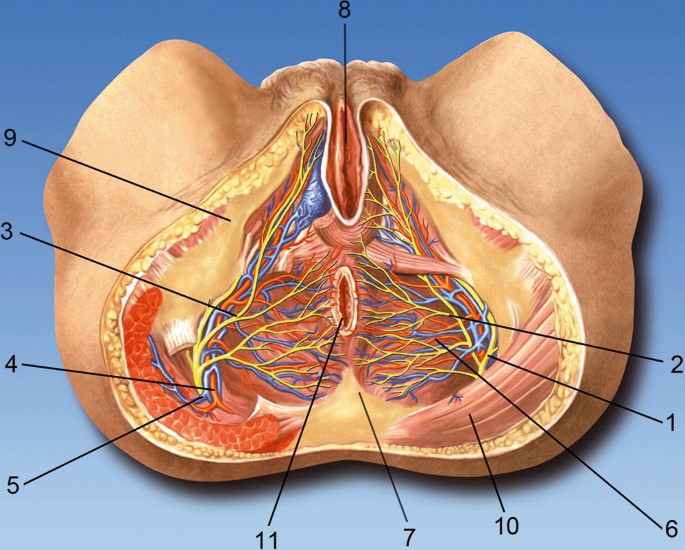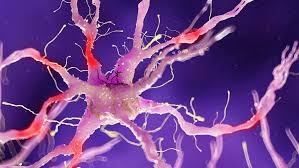Did you know that the vaginal canal has over 8,000 nerve endings, making it one of the most sensitive areas of the body?

The vaginal nerves: often overlooked but incredibly powerful.
Did you know the vagina has over 8,000 nerve endings? It’s one of the most sensitive parts of the body. These nerves don’t just affect pleasure—they play a big role in your overall health.

Vaginal nerves are more important than most of us realize. They affect how we feel, experience pleasure, and even how our bodies function every day. Yet, they don’t get much attention until there’s a problem. Let’s talk about what these nerves do, how they work, and what you can do to keep them healthy.
What Are Vaginal Nerves?
Vaginal nerves are like tiny messengers. They send signals to your brain, helping you feel sensations like pressure, pleasure, or even pain. They’re also connected to other parts of your body, like your pelvic muscles. This means they’re involved in things like bladder control, intimacy, and even how your body heals after childbirth or surgery.
How Vaginal Nerves Impact Your Life
I remember a friend of mine, Josey, who told me about her experience after having her first baby. She said she felt disconnected from her body for months. Intimacy felt different, and she started having some bladder leaks when she laughed or sneezed. It wasn’t until she talked to her doctor that she learned about the role nerves play in healing and pelvic health.
The nerves in your vagina are more than just about pleasure. They help your muscles work the way they should, control sensations, and even alert you to problems, like an infection or irritation.
The Nerves You Should Know
Here are a few key players:
Pudendal Nerve
This one is like the “boss” nerve. It controls most of the sensations in the vagina and nearby areas. It also helps with muscle control, like keeping you from leaking urine.Pelvic Nerve
This nerve sends deeper sensations from inside the vagina to the brain. It’s a big part of how you experience pleasure.Hypogastric Nerve
It’s more about sensations of discomfort, like when something feels too tight or full.Vagus Nerve
This nerve is unique because it sends signals straight to the brain, bypassing the spinal cord. It plays a role in how your body reacts emotionally and physically during intimacy.
What Can Go Wrong?
Vaginal nerves are sensitive. When they’re healthy, they work quietly in the background. But when something’s off, you’ll notice.
- Pain: Conditions like vulvodynia (chronic pain around the vulva) can make even light touches feel unbearable.
- Numbness: Childbirth, surgery, or certain health conditions like diabetes can damage nerves, causing a loss of sensation.
- Changes in Sensitivity: Menopause or hormonal shifts can affect blood flow, which impacts how well nerves function.
Caring for Your Vaginal Nerves
Taking care of these nerves isn’t complicated. A few simple habits can make a big difference:
- Strengthen Your Pelvic Floor: Try Kegel exercises. They keep the muscles and nerves in your pelvic area strong.
- Stay Active: Regular exercise improves blood flow, which is essential for healthy nerves.
- Protect Yourself: Use protection during sex to prevent infections that can harm nerves.
- Lower Stress: Stress affects your entire body, including your nerves. Practice relaxation techniques that work for you.
My Story
For me, it was after surgery that I started noticing changes. Things didn’t feel the same during intimacy. I also felt a weird tingling sensation that wouldn’t go away. I thought it was just part of healing, but when it didn’t get better, I finally saw my doctor.
Turns out, some of the nerves had been irritated during the procedure. Thankfully, with some pelvic floor therapy and time, everything went back to normal. It made me realize how important these nerves are—not just for pleasure but for overall health.
When to Get Help
If you notice something unusual, like pain, numbness, or changes in sensation, talk to a doctor. These issues might feel uncomfortable to bring up, but they’re more common than you think. Your doctor can help you figure out what’s going on and suggest treatments that work.
Vaginal nerves might be small, but they have a big job. Taking care of them means paying attention to your body and seeking help when you need it. Whether it’s through exercise, managing stress, or seeing a specialist, you deserve to feel your best. And remember, you’re not alone—there’s always help if you need it.
